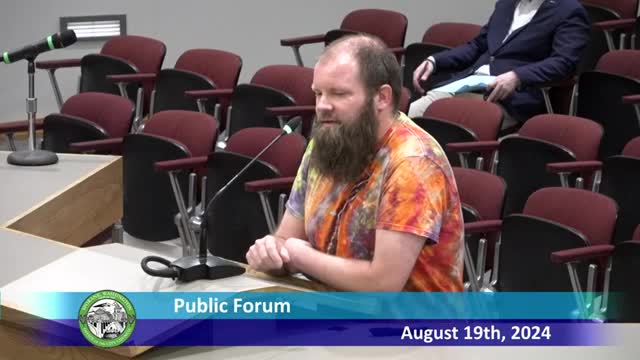Police Power Abuse Sparks Outrage in Spokane Community
August 19, 2024 | Spokane, Spokane County, Washington
This article was created by AI summarizing key points discussed. AI makes mistakes, so for full details and context, please refer to the video of the full meeting. Please report any errors so we can fix them. Report an error »

During a recent city council meeting, community concerns regarding police conduct and public perception were brought to the forefront. A speaker highlighted the importance of public spaces, noting that many individuals enjoy gathering in shaded areas without causing disturbances. This observation was met with appreciation from council members who value firsthand accounts of community interactions.
However, the tone shifted dramatically when the speaker, Earl, addressed an incident involving a friend, Joseph Sampson, who faced harassment from the Spokane Police Department (SPD). Earl described how Sampson was cited for obstructing the sidewalk while eating breakfast, despite the absence of foot traffic in the area at the time. He criticized the police's actions as an abuse of power, suggesting that the situation escalated unnecessarily, particularly when an officer produced medical gloves during the encounter.
Earl's comments raised questions about police training and accountability, implying that such behavior reflects poorly on the current administration. He concluded with a call for the officer involved to be reassigned to less impactful duties, urging the council to consider the implications of police interactions with the community.
The meeting underscored ongoing tensions between law enforcement practices and community relations, highlighting the need for dialogue and potential reform in policing strategies.
However, the tone shifted dramatically when the speaker, Earl, addressed an incident involving a friend, Joseph Sampson, who faced harassment from the Spokane Police Department (SPD). Earl described how Sampson was cited for obstructing the sidewalk while eating breakfast, despite the absence of foot traffic in the area at the time. He criticized the police's actions as an abuse of power, suggesting that the situation escalated unnecessarily, particularly when an officer produced medical gloves during the encounter.
Earl's comments raised questions about police training and accountability, implying that such behavior reflects poorly on the current administration. He concluded with a call for the officer involved to be reassigned to less impactful duties, urging the council to consider the implications of police interactions with the community.
The meeting underscored ongoing tensions between law enforcement practices and community relations, highlighting the need for dialogue and potential reform in policing strategies.
View full meeting
This article is based on a recent meeting—watch the full video and explore the complete transcript for deeper insights into the discussion.
View full meeting
